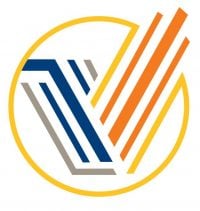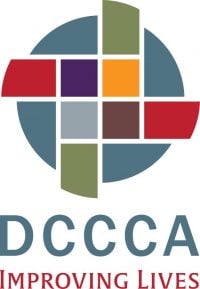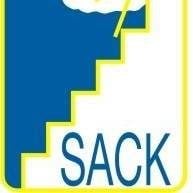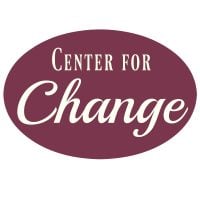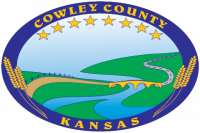
Cognitive Outreach Groups - COG
Drug Rehab Center in Winfield, Kansas
- Substance Abuse
- Opioid Addiction
- Drug Addiction
- Alcoholism
Cognitive Outreach Groups - COG in Winfield, Kansas is a treatment center that provides comprehensive support and services for individuals with addiction and substance abuse, including individual and group counseling, life skills education, and medication-assisted treatment, with an individualized treatment plan developed for each client. They are accredited by The Joint Commission and offer specialized programs for military veterans.
About Cognitive Outreach Groups - COG in Kansas
Cognitive Outreach Groups - COG in Winfield, Kansas is a treatment center dedicated to providing quality, comprehensive support and services to individuals suffering from addiction and substance abuse. They offer an intensive outpatient program, clinical support services, and other therapies to assist individuals and families as they go through the recovery process. They provide individualized care and attention to each of their clients, focusing on their particular needs.
At Cognitive Outreach Groups - COG, individuals can receive services such as individual and group counseling, life skills and relapse prevention education, and medication-assisted treatment. Their team is trained in evidence-based practices for addiction treatment and will work with each individual to develop an individualized treatment plan that best meets their needs. The center also provides family support services such as family therapy, educational workshops, and resources with referrals.
Cognitive Outreach Groups - COG is accredited by The Joint Commission, which means they have met the highest standards of care in the industry. They also hold a license from the Kansas Department of Mental Health and Substance Abuse, as well as awards from the National Institute on Drug Abuse. Additionally, they offer specialized programs to meet the unique needs of military veterans, including individual therapy, group therapy, educational sessions, and family support.
Genders
Ages
Modality
Additional
Conditions and Issues Treated
Many people need to recover from substance abuse to live a healthy life. In the end, if you can get through all the steps: detoxifying your body, rehabilitation after some time or when needed (depending on the type), and recovery while also receiving therapy support throughout the process, it can be worth it.
A detoxification center is a common place to start the recovery process from substance abuse. With your body and mind restored, you can continue to heal without the lingering effects of drugs.
Many people who struggle with opioid addiction need to attend specific programs like methadone , Suboxone or Vivitrol clinics.
These types of programs will provide the patient with legal, prescription medications that can help them overcome their cravings for illegal opioids like heroin or fentanyl . If the patient has a chronic condition like Hepatitis C, they must undergo treatment before they can begin taking these medications.
Levels of Care Offered
This center offers a variety of custom treatment tailored to individual recovery. Currently available are Aftercare Support, Drug Rehab, Outpatient, with additional therapies available as listed below.
An outpatient treatment program is set up to help with alcohol or drug addiction, or a co-occurring disorder. The patient must attend the Kansas facility for their therapy and other programs but are able to return home each night. The frequency of mandatory attendance decreases after much of Cognitive Outreach Groups - COG‘s program is complete.
Aftercare is a term that’s used to refer to any sort of continuing care offered for a drug addict who has voluntarily entered a rehabilitation program. This type of care can be provided in several settings, including outpatient therapy sessions after the addict has completed an inpatient program. There are also 12-step support groups, such as Alcoholics Anonymous, which can provide additional help for addicts trying to stay sober.
Therapies & Programs
Group Therapy is utilized by drug treatment centers like Cognitive Outreach Groups - COG to provide the recovering drug addict with a platform to talk about their feelings and experiences. It also provides for an opportunity to learn from other addicts who have successfully overcome their addiction.
Group Therapy is employed in lectures, seminars, or discussion groups (the latter two are typically conducted as “therapy groups”). It is recommended that all group members be recovering addicts for this type of therapy to work (though it does not exclude others with lived experience).
Trauma therapy is a clinical process that helps individuals deal with mental stress often caused by traumatic events. It is generally done for children, teenage victims of sexual assault, and war veterans. The therapist helps the person identify, understand and work through the problem. This is done with the help of talking about it in group or one-on-one counseling sessions. Therapists use relaxation, role-playing, art, and music to help the person open up about what is bothering them.
Cognitive behavioral therapy is also a popular service for individuals living with addiction. This type of supportive treatment uses both one-on-one counseling and group sessions to teach addicts how to identify thoughts, behaviors and emotions that might increase their risk of relapse.
These professionals can help addicts develop coping skills for managing stress, improving self-esteem and overcoming triggers. They might also use behavioral therapy to help addicts learn how to avoid cravings and warning signs that could lead them back into addiction.
Therapy can be used as a step-down from inpatient treatment or as the primary method of overcoming an addiction. No matter which option is best for the addict, they will teach important emotional coping techniques, which can make it easier for addicts to get through the tough days.
Training in improved life skills helps those recovering from addiction feel more capable of self-care. Cognitive Outreach Groups - COG are daily skills that give the person the tools they need to survive.
The therapy covers practical activities like cooking, job hunting, social interaction, and money management, helping to fill in the knowledge gaps caused by addiction.
These life skills help the person self-manage their recovery and stay on track. It also reduces relapse risk as they gain confidence in their day-to-day abilities.
Payment Options Accepted
For specific insurance or payment methods please contact us.
Is your insurance accepted?
Ask an expert, call (888) 674-0062
Additional Details
Specifics, location, and helpful extra information.
Winfield, Kansas 67156 Phone Number(620) 221-3454 Meta DetailsUpdated November 25, 2023
Staff Verified
Cognitive Outreach Groups - COG Patient Reviews
There are no reviews yet. Be the first one to write one.
Winfield, Kansas Addiction Information
About 42% of adults in Kansas have tried an illicit drug at some point in their lives. 12.4% of the state population uses illegal drugs and 4.5% abuse alcohol in a given year. 15.16% of all deaths in Kansas between 2008 and 2017 were caused by either drugs or alcohol.
About 9.4% of the population in Winfield, KS, has a drug addiction problem. This is higher than the national average of 8.9%. Many great drug rehab centers are available to help people overcome addiction. The best way to find the best drug treatment facility is to ask for referrals from friends or family members, or use trusted resources online to learn about each individual facility.
Treatment in Nearby Cities
- Holton, KS (168.3 mi.)
- Shawnee, KS (174.8 mi.)
- Louisburg, KS (158.2 mi.)
- Seneca, KS (186.3 mi.)
- Winfield, KS (0.1 mi.)
Centers near Cognitive Outreach Groups - COG
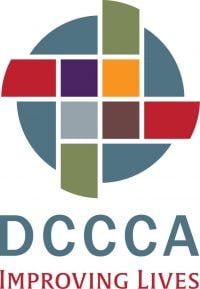


The facility name, logo and brand are the property and registered trademarks of Cognitive Outreach Groups - COG, and are being used for identification and informational purposes only. Use of these names, logos and brands shall not imply endorsement. RehabNow.org is not affiliated with or sponsored by Cognitive Outreach Groups - COG.


